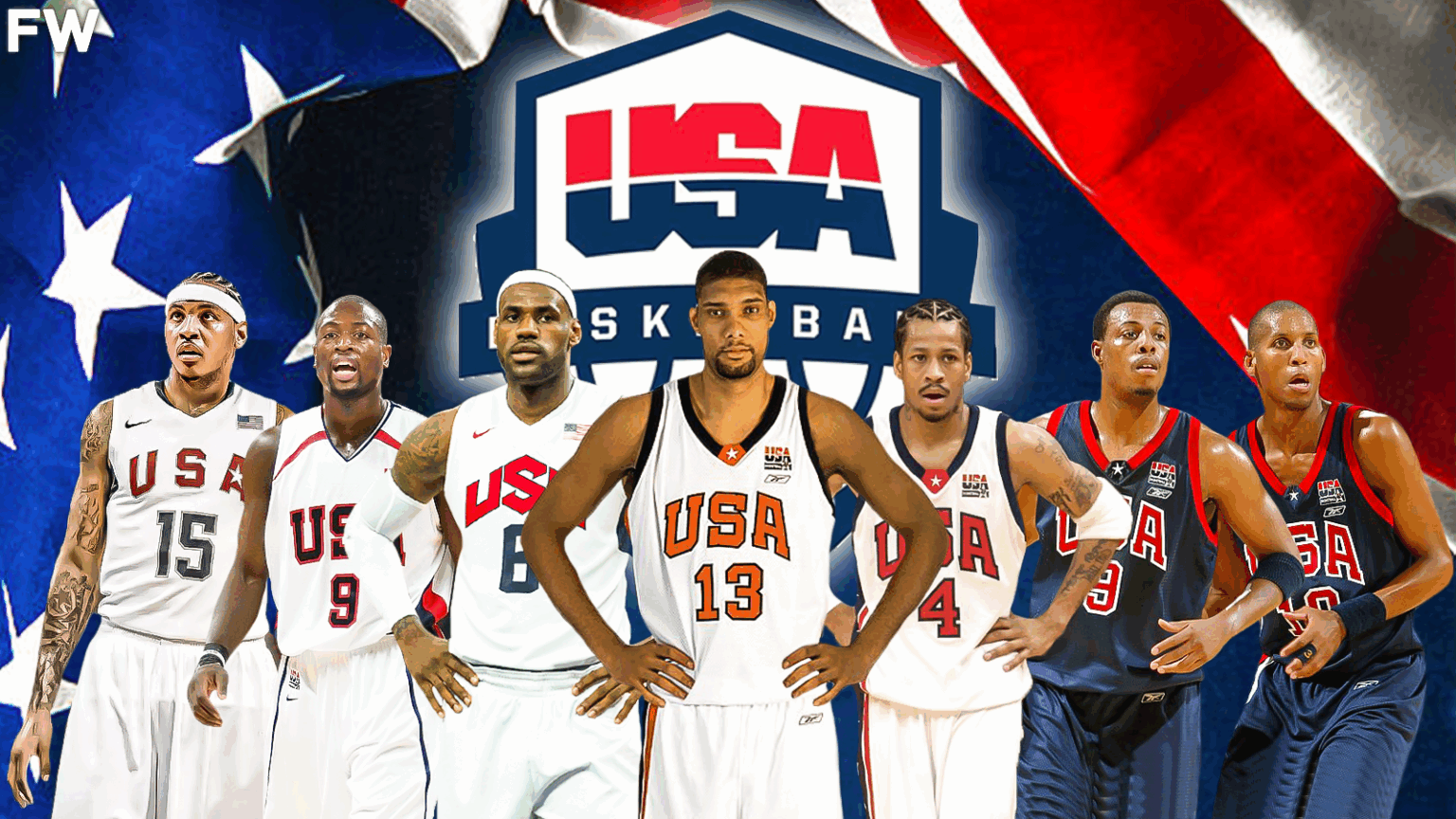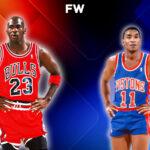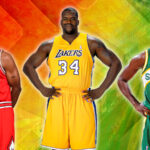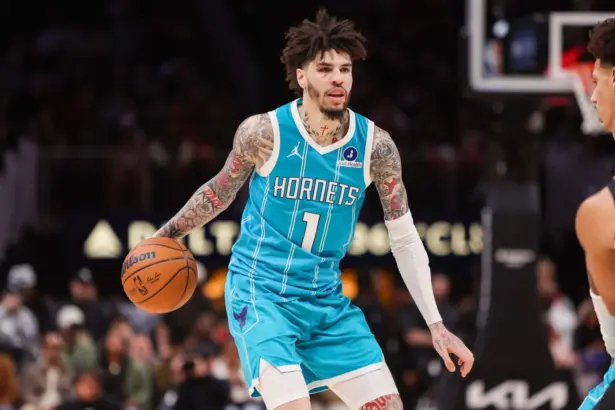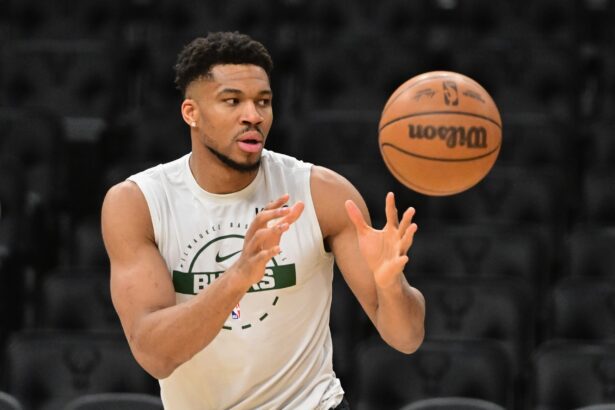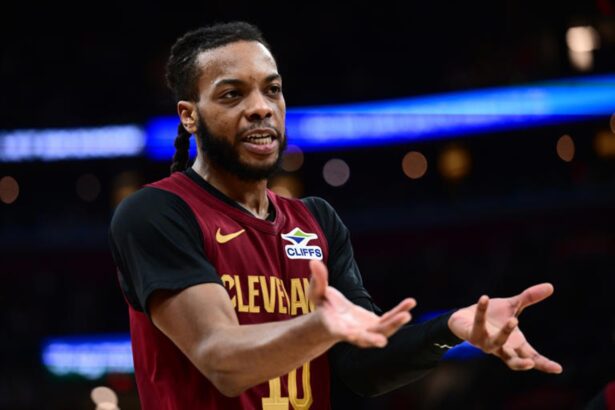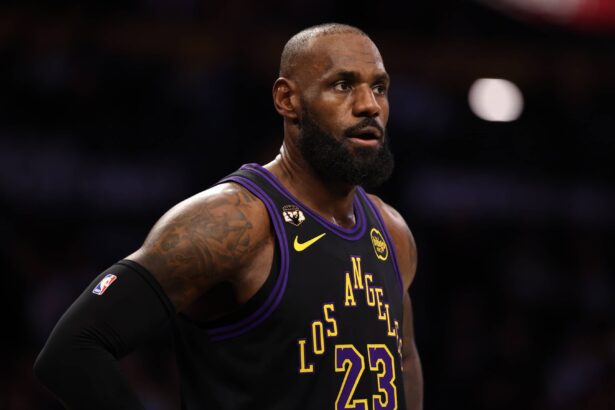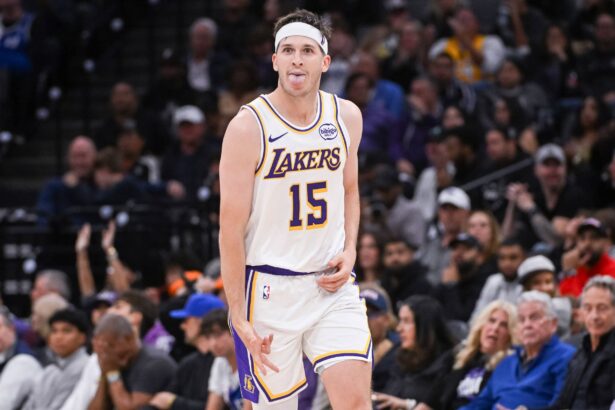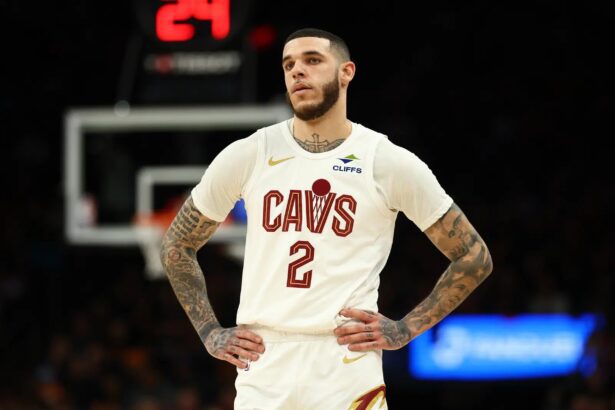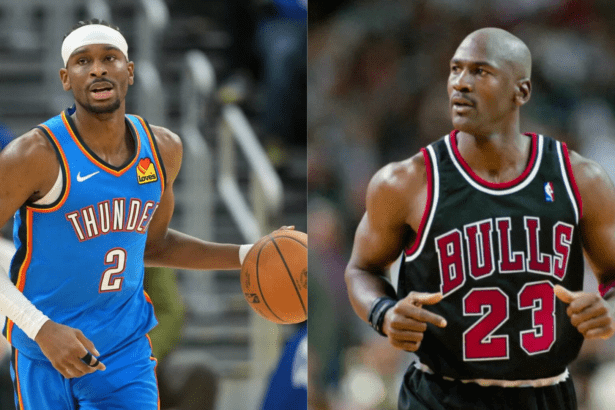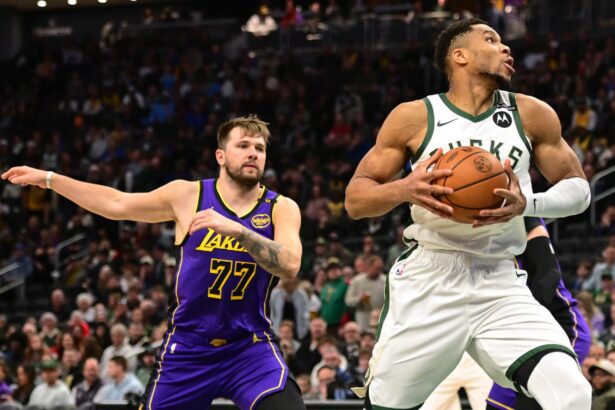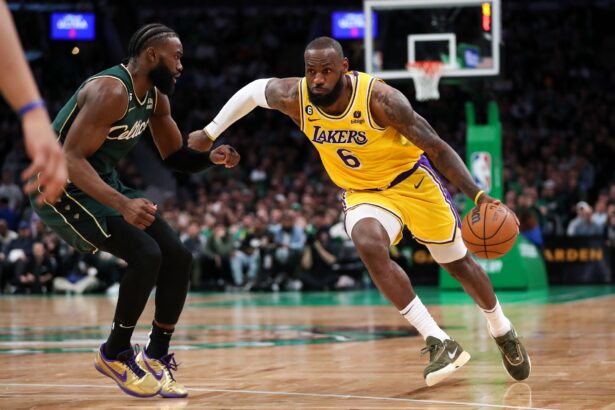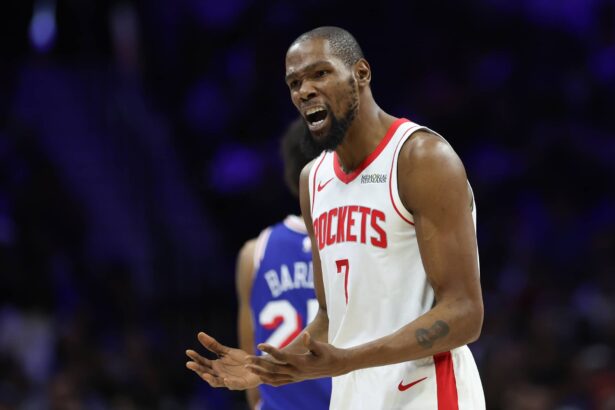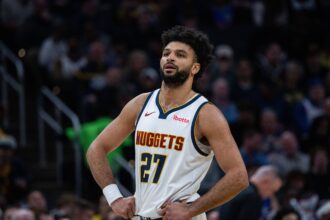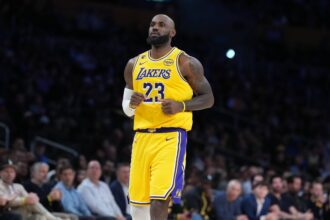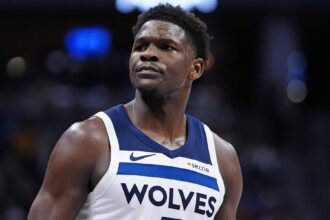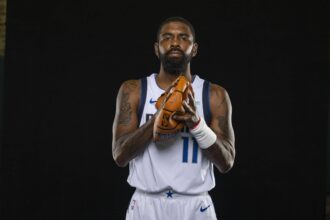- Team USA has been the greatest basketball side throughout international history
- Despite their dominance, there have been some shocking defeats at the hands of underdogs
- Americans cannot take another shocking defeat and must win the 2023 FIBA World Cup
For decades, Team USA has been synonymous with basketball excellence, boasting a legacy forged through unparalleled dominance in various international tournaments. From the Olympics to the FIBA World Cup, the American juggernaut has reigned supreme, leaving a trail of gold medals and shattered records in its wake.
However, amidst the glittering victories and iconic moments, there exists a captivating subplot that adds layers of intrigue to the saga of Team USA’s international journey. It’s a subplot characterized by the unexpected twists that remind us all of the unpredictable nature of sports.
In this in-depth exploration, we pivot our focus away from the glorious victories and pivot instead toward those moments that left fans, players, and pundits alike in disbelief – the times when Team USA, despite its towering reputation and star-studded rosters, faced shocking exits from the very competitions it was presumed to dominate.
From the historic defeat at the hands of the European teams in both the Olympics and FIBA tournaments, we delve into the annals of basketball history to uncover the intricate stories behind Team USA’s most unexpected departures. It is time to go through Team USA Basketball’s most shocking exits from international competitions.
1972 Olympic Games – Munich
The shocking exit of Team USA Basketball from the 1972 Munich Olympics is one of the most controversial and debated moments in the history of international sports. The context leading up to the event, the game itself, and the aftermath all contribute to the gravity of the situation.
The United States had been dominant in Olympic basketball, winning the gold medal in every edition of the games they participated in. In the 1972 Munich Olympics, Team USA entered the gold medal match with a perfect record in the tournament, having convincingly defeated their opponents.
With a roster stacked with talent such as Doug Collins, Dwight Jones, Bobby Jones, and Tom Henderson, Team USA was not supposed to settle with anything except gold. However, it did not turn out that way.
The gold medal game took place on September 9, 1972, and pitted Team USA against the Soviet Union. The game was intense and closely contested throughout, with the lead frequently changing hands. As the final seconds ticked away, the United States held a slim 50-49 lead.
With just seconds remaining, the Soviets had possession and attempted a field goal to win the game. The shot missed, and Doug Collins of Team USA grabbed the rebound. Collins was immediately fouled and went to the free-throw line with just three seconds left on the clock. He made the first free throw but what followed next would be the source of intense controversy.
Before Collins could take his second free throw, the officials allowed the Soviet coach to call a timeout to set up a final play. However, FIBA rules at the time did not allow a timeout to be granted between free throws. The officials’ decision to allow the timeout has been heavily criticized and is a central point of contention.
After the timeout, the Soviets inbounded the ball and attempted another shot, which also missed. But a Soviet player, Aleksandr Belov, managed to grab the rebound and score on a layup. The clock showed one second left when Belov’s shot went in.
The confusion and controversy continued after the final shot. The American team protested vigorously, claiming that the final play should not have been allowed to happen due to the incorrect granting of the timeout. The officials, however, upheld the basket, declaring the Soviet Union the winner of the gold medal with a score of 51-50.
The American team did not accept the decision and refused to accept their silver medals during the medal ceremony. The players’ actions highlighted the sense of injustice they felt about the circumstances surrounding their defeat.
1988 Olympic Games – Seoul
The 1988 Seoul Olympics marked a significant moment in the history of basketball. The United States had traditionally dominated the sport, but the global landscape was changing.
International teams were becoming more competitive, and the American roster for the 1988 Olympics featured a mix of NBA players and college stars, in contrast to the All-NBA squads of previous years. The 23-year-old Dan Majerle, 23-year-old David Robinson, and 23-year-old Mitch Richmond were the stars of the team as they led the team in scoring, rebounds, and assists respectively.
The semifinal between Team USA and the Soviet Union took place on September 29, 1988. The game was highly anticipated due to the historical context of the Cold War rivalry between the two nations and the high stakes of the Olympic stage.
The game itself was a closely contested battle at the start but the Soviets had managed a monster 14-point lead at one point during the game. Due to the fact that the Americans had a vast range of college players, they were unable to show toughness and experience when it mattered most.
Team USA did bounce back, cutting the 14-point lead to only two points. But the USSR once again went on a mini-run to push the lead to seven points, 57-50 at one point. With five minutes left in the game, the difference was still seven points with a 67-60 scoreline.
Despite a valiant attempt by the Americans, the Soviets were simply too large, too experienced, and had team chemistry as they defeated the USA 82-76 in a heartbreaking loss. It was this exit that started the idea of the formation of the iconic 1992 “Dream Team” that completely dominated the basketball world.
1998 FIBA World Cup – Greece
Team USA was not really Team USA in this competition, but they still were considered one of the favorites. This tournament showcased the challenges and complexities of international basketball during a period of labor disputes in the NBA.
In 1998, the NBA experienced a labor dispute that led to a lockout. As a result, there was uncertainty regarding the participation of NBA players in international competitions, including the FIBA World Cup.
Historically, Team USA had fielded teams with NBA players, and their dominance was well-known. However, due to the lockout, it was unclear whether NBA players would be available for the 1998 FIBA World Cup.
Because of the ongoing lockout, many NBA players were unavailable to compete for Team USA in the FIBA World Cup. The lockout prevented negotiations between the NBA Players Association and team owners from being resolved in time for the tournament.
There weren’t any recognizable players in the select team outside of center Brad Miller who was taken from Purdue Boilermakers. The rest of the team consisted of college players and players from international teams such as Sevilla.
With NBA players largely unavailable, Team USA had to put together a roster that included college players and players from other professional leagues. The roster lacked the star power and experience that had been characteristic of previous American squads.
Somehow, the Americans still made it to the semifinals. In the semifinals of the 1998 FIBA World Cup, Team USA faced Russia on August 7, 1998.
Team USA struggled against a disciplined Russian team. The Americans were outplayed by the Russian squad, and their lack of experience and cohesion showed. Despite their efforts, Team USA fell to Russia with a final score of 66-64.
The loss to Russia in the semifinals meant that Team USA would not advance to the gold medal game. Instead, they would compete in the bronze medal game which they ended up winning. While the team’s loss to Russia in the semifinals was disappointing, it also highlighted the complexities of international basketball and the importance of player availability and cohesion in achieving success on the global stage.
2002 FIBA World Cup – United States
The 2002 Team USA Basketball defeat to Yugoslavia was a significant moment that marked a turning point in the landscape of international basketball and signaled the waning of American dominance in the sport.
This defeat, occurring in the quarterfinals of the FIBA World Championship, was a wake-up call that highlighted the increasing competitiveness of international teams and the need for the United States to adapt to a changing global basketball scene.
By 2002, Team USA had experienced a stretch of successes and challenges in international basketball. The 1992 “Dream Team” showcased American dominance, but subsequent years saw the emergence of formidable international players in the NBA and the growth of basketball on a global scale.
The 2002 squad featured a solid crew of All-Stars including Michael Finley, Paul Pierce, Reggie Miller, Ben Wallace, and Elton Brand but true leaders were missing. It was clear that this crew of players were not ready to take on the clinical Yugoslavia.
The quarterfinal matchup of the 2002 FIBA World Championship pitted Team USA against Yugoslavia, a team known for its strong basketball tradition. Yugoslavia boasted a skilled roster with players who were experienced both internationally and in European leagues including star center Vlade Divac and sharpshooting phenom Peja Stojakovic.
The game was a fierce battle, with both teams showcasing their skills and determination. Yugoslavia executed a disciplined offense and capitalized on the vulnerabilities of the American defense. Despite Team USA’s efforts, Yugoslavia maintained a lead throughout much of the game.
In a shocking upset, Yugoslavia defeated Team USA with a final score of 81-78. The loss meant that Team USA would not advance to the semifinals and would be relegated to the classification round for fifth to eighth place.
The defeat to Yugoslavia in 2002 marked the first time that Team USA had failed to reach the semifinals of a major international tournament. This outcome sent shockwaves through the basketball community and prompted widespread discussions about the state of American basketball and the evolving international landscape.
2004 Olympic Games – Athens
Leading up to the 2004 Athens Olympics, Team USA had established itself as a basketball powerhouse with a legacy of Olympic gold medals.
However, the USA roster in 2004 was never going to be good enough to dismantle all competition and they welcomed competition from a variety of teams including the talented Argentina.
Allen Iverson and Tim Duncan were considered the veteran leaders of the team as rookies LeBron James, Dwyane Wade, and Carmelo Anthony were supposed to be the go-to offensive players. Other players such as Shawn Marion, Emeka Okafor, and Richard Jefferson were also not ready and experienced enough to go after the gold.
In the semifinals of the 2004 Athens Olympics, Team USA faced Argentina, a team that had been building a strong basketball tradition of its own. Argentina boasted a roster of experienced players, including NBA stars such as Manu Ginobili, Andres Nocioni, and Carlos Delfino.
The semifinal game was a competitive and tightly contested battle from start to finish until the experience of the stars proved to be too much in the end. Argentina’s team chemistry and unselfish style of play stood in contrast to Team USA’s reliance on individual talent and isolation plays.
Argentina’s collective effort and ball movement challenged Team USA’s defensive schemes and highlighted the importance of teamwork on the international stage.
In a shocking upset, Argentina defeated Team USA with a final score of 89-81. The loss meant that Team USA would not advance to the gold medal game and would compete for the bronze medal instead.
The defeat to Argentina was a turning point that brought attention to the need for a different approach to international basketball. The loss exposed the shortcomings of a strategy based solely on individual athleticism and underscored the importance of cohesive teamwork and understanding opponents’ playing styles.
The 2004 defeat to Argentina marked a defining moment in Team USA Basketball history. While disappointing at the time, it became a catalyst for positive change.
The lessons learned from that loss contributed to the formation of the “Redeem Team” in the 2008 Beijing Olympics, which aimed to restore Team USA’s basketball reputation and recapture gold.
2006 FIBA World Cup – Japan
Team USA’s shocking exit from the 2006 FIBA World Cup, specifically their loss to Greece in the semifinals, represented a significant moment in international basketball and underscored the challenges of adapting to a globalized game.
America’s roster was led by a slightly more experienced LeBron James, Carmelo Anthony, and Dwyane Wade while the likes of Chris Paul, Dwight Howard, and Chris Bosh also provided solid All-Star quality. Amazingly, even with this roster, the toughness and basketball IQ were not there.
No doubt, one of the primary reasons for Team USA’s defeat was their defensive struggles against Greece’s disciplined and deliberate offensive approach. Greece executed an efficient pick-and-roll game, exploiting defensive breakdowns and forcing mismatches.
The American defenders often struggled to switch and communicate effectively, leading to open shots and easy baskets for Greece.
Greece’s strategic use of mismatches played a pivotal role. The Greek team took advantage of their size and versatility to isolate players in one-on-one situations. Players like Theodoros Papaloukas and Vassilis Spanoulis capitalized on these opportunities, showcasing their craftiness and basketball IQ to exploit defensive weaknesses.
The 2006 semifinal defeat against Greece (101-95) was a culmination of the changing landscape in international basketball. It marked a shift from the traditional perception of American invincibility to a recognition of the growing parity and competitiveness of international teams.
The loss exposed the challenges of adapting to FIBA rules, different playing styles, and the collective experience of international opponents.
The shocking exit against Greece prompted a period of introspection and reform within USA Basketball. The loss contributed to a renewed focus on selecting players who were well-suited for the international game, emphasizing defense, unselfish play, and the understanding of FIBA rules.
Following the disaster of two straight competitions, the “Redeem Team” in 2008 was absolutely needed which aimed to restore Team USA’s basketball reputation and recapture gold on the world stage.
2019 FIBA World Cup – China
The 2019 defeat in the FIBA World Cup was the latest embarrassment for the Americans in the sport they dominate so well. Quite frankly, the USA roster was definitely below average in comparison to past teams.
One of the key factors that impacted Team USA’s performance was the absence of several marquee NBA players. Many star players opted not to participate in the tournament for various reasons, including injuries, rest, and preparation for the upcoming NBA season.
This resulted in a roster that lacked the star power and experience that had been characteristic of previous Team USA squads. The key names included Donovan Mitchell, Jayson Tatum, and Jaylen Brown. As good as these youngsters were, they were not ready to lead a country’s roster to victory and we knew that from the start.
Team USA faced defensive challenges throughout the tournament. Their opponents exploited defensive weaknesses, particularly in the paint and around the perimeter. Additionally, the team struggled with outside shooting, making it difficult to stretch the floor and create open scoring opportunities.
The quarterfinal matchup against France was particularly significant. Despite holding a sizable lead, Team USA allowed France to mount a comeback in the second half. Defensive breakdowns and missed opportunities on offense allowed France to claw back into the game.
A late-game blunder, where Team USA attempted to intentionally miss a free throw but inadvertently made it, gave France a chance to tie the game. France eventually secured an 89-79 victory in overtime, marking Team USA’s first loss in a major international tournament since 2006.
This shocking defeat was giving American fans concerns of the past, but luckily, Team USA was able to regroup and attack the 2020 Olympics with superstar Kevin Durant leading the way for the gold medal. Even though there was no way Team USA should have failed in the 2019 FIBA World Cup that was the reality that Gregg Popovich and the players had to endure.

